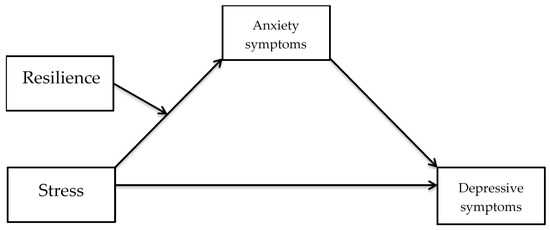
Canadian farmers play a vital role in providing food and resources for the nation. However, the unique challenges they face can often lead to stress, anxiety, and depression. The demanding nature of farming, coupled with unpredictable weather conditions, financial pressures, and isolation, can take a toll on the mental well-being of farmers.
Stress is a common experience for many Canadian farmers. The constant pressure to meet production targets, manage livestock, and navigate market fluctuations can lead to feelings of overwhelm and anxiety. Additionally, farmers often face long working hours, physical exhaustion, and financial strain, further contributing to their stress levels.
Anxiety is another prevalent issue among Canadian farmers. The uncertainty of farming, such as crop yields and market prices, can create a high level of worry and apprehension. Farmers may also experience anxiety related to the future of their farms, succession planning, and the sustainability of their operations.
Depression is a serious mental health concern that affects many farmers in Canada. The combination of chronic stress, financial instability, and social isolation can contribute to the development of depressive symptoms. The stigma associated with seeking help for mental health issues in rural communities can further exacerbate the problem.
Despite these challenges, Canadian farmers have shown remarkable resilience. They possess a unique ability to adapt to adversity and find innovative solutions to overcome obstacles. Building resilience in farmers is crucial to support their mental well-being and ensure the sustainability of the agricultural industry in Canada.
The Impact of Agricultural Work on Mental Health

Farming is a demanding occupation that can have a significant impact on the mental health of Canadian farmers. The stress and pressures associated with agricultural work can lead to anxiety and depression, posing serious challenges to the well-being of individuals in this profession.
One of the key factors contributing to the mental health challenges faced by farmers is the unpredictable nature of their work. Farmers often face constant uncertainty due to factors such as weather conditions, market fluctuations, and crop diseases. This uncertainty can lead to high levels of stress, as farmers are constantly under pressure to make critical decisions that can have a significant impact on their livelihoods.
In addition to the stress caused by the unpredictable nature of agricultural work, farmers also face unique challenges related to isolation and social support. Many farmers work long hours and live in rural areas, which can result in feelings of loneliness and limited access to mental health resources. This lack of social support can exacerbate feelings of anxiety and depression, making it even more difficult for farmers to cope with the demands of their work.
Despite these challenges, Canadian farmers have also shown remarkable resilience in the face of adversity. They have developed strategies to cope with stress and maintain their mental well-being. These strategies include seeking social support from fellow farmers, participating in community events, and engaging in activities outside of their work to reduce stress and promote relaxation.
Recognizing the impact of agricultural work on mental health is crucial for developing effective interventions and support systems for Canadian farmers. By understanding the unique challenges faced by farmers and promoting mental health awareness in this profession, we can work towards creating a healthier and more resilient farming community.
High Levels of Stress

Canadian farmers often experience high levels of stress due to various factors, including financial pressures, unpredictable weather conditions, and market uncertainties. The demands of managing a farm can be overwhelming, leading to increased stress, anxiety, and even depression.
Stress is a natural response to challenging situations, but when it becomes chronic and overwhelming, it can have detrimental effects on farmers’ mental and physical health. The constant pressure to meet financial obligations, maintain crop yields, and navigate complex regulations can take a toll on farmers’ well-being.
Anxiety is also prevalent among Canadian farmers, as they face uncertainties related to climate change, market fluctuations, and global trade policies. The fear of crop failures, price volatility, and the inability to secure stable markets can contribute to heightened anxiety levels.
Nevertheless, Canadian farmers have shown remarkable resilience in the face of these challenges. They adapt to changing circumstances, seek support from their communities, and develop innovative strategies to mitigate stress and anxiety. Resilience plays a crucial role in helping farmers bounce back from setbacks and maintain their mental well-being.
However, it is essential to recognize the signs of depression in farmers and provide them with appropriate support. Depression can manifest as feelings of sadness, hopelessness, and loss of interest in activities. It can significantly impact farmers’ ability to cope with stress and may lead to reduced productivity and even suicidal ideation.
In conclusion, Canadian farmers experience high levels of stress, anxiety, and depression due to the unique challenges they face. However, their resilience and determination are commendable, as they continue to contribute to the agricultural industry while navigating these mental health challenges.
Anxiety and its Causes

Anxiety is a common mental health issue among farmers in Canada, and it can have a significant impact on their overall well-being. There are several factors that contribute to anxiety in farmers, including:
- Stress: Farmers often face high levels of stress due to various factors such as financial pressures, unpredictable weather conditions, and the demands of running a farm. This chronic stress can lead to the development of anxiety.
- Financial concerns: The financial instability and uncertainty associated with farming can be a major source of anxiety for Canadian farmers. Fluctuating market prices, rising costs, and the potential for crop failure can all contribute to financial worries.
- Isolation: Farmers often work in remote areas and may have limited social interaction, which can lead to feelings of loneliness and isolation. This lack of social support can increase the risk of anxiety.
- Uncertainty: The agricultural industry is subject to many uncertainties, such as changing government regulations, trade disputes, and climate change. The constant unpredictability of farming can create a sense of anxiety about the future.
- Physical demands: Farming is physically demanding work, and the physical strain can take a toll on farmers’ mental health. Chronic pain, injuries, and exhaustion can contribute to anxiety and make it more difficult to cope with stress.
Despite these challenges, many Canadian farmers demonstrate resilience in the face of anxiety. Building resilience can help farmers develop the skills and strategies to better manage stress and anxiety. It is important to raise awareness about mental health issues in the farming community and provide support and resources to help farmers cope with anxiety and improve their overall well-being.
The Link Between Depression and Farming

Anxiety, depression, and resilience are significant issues among Canadian farmers. The demanding nature of farming, combined with factors such as unpredictable weather, financial pressures, and isolation, can contribute to increased stress levels and mental health challenges. Depression, in particular, is a prevalent issue in the farming community.
Research has shown that farmers are at a higher risk of experiencing depression compared to individuals in other occupations. The unique stressors and uncertainties faced by farmers, such as market fluctuations and crop failures, can take a toll on their mental well-being. Additionally, the physical demands of farming, long working hours, and the pressure to maintain a successful operation can further contribute to feelings of depression.
Furthermore, the stigma surrounding mental health in rural communities can hinder farmers from seeking help. The perception that seeking mental health support is a sign of weakness or an admission of failure can prevent individuals from accessing the necessary resources and support systems. This lack of support can exacerbate the symptoms of depression and make it even more challenging to cope with the daily stresses of farming.
However, it is essential to recognize the resilience of Canadian farmers. Despite these challenges, many farmers demonstrate remarkable strength and perseverance. Resilience is a vital characteristic that enables farmers to bounce back from adversity and cope with the pressures they face. Building resilience involves developing healthy coping mechanisms, fostering social connections, and seeking support when needed.
Efforts are being made to raise awareness about mental health in the farming community and to provide resources and support for farmers struggling with depression and other mental health issues. Initiatives such as mental health training programs, helplines, and community support groups aim to reduce the stigma surrounding mental health and ensure that farmers have access to the help they need.
In conclusion, depression is a significant concern for Canadian farmers. The unique challenges of farming, combined with the stigma surrounding mental health, can contribute to increased rates of depression among farmers. However, it is crucial to recognize the resilience of farmers and provide them with the necessary support and resources to cope with these challenges and maintain their mental well-being.
Factors Contributing to Mental Health Challenges

Canadian farmers face a unique set of challenges that can contribute to mental health issues such as anxiety, stress, and depression. These challenges stem from various factors, including:
1. Financial pressures: Farmers often face financial uncertainty due to fluctuating commodity prices, unpredictable weather conditions, and increasing costs of production. These financial pressures can lead to stress and anxiety, as farmers struggle to make ends meet and maintain their livelihoods.
2. Isolation: Farming can be a solitary profession, with farmers spending long hours working alone in remote rural areas. This isolation can lead to feelings of loneliness and social isolation, which can contribute to mental health issues.
3. Physical demands: Farming is a physically demanding occupation, requiring farmers to perform strenuous tasks and work long hours. The physical demands of farming can take a toll on farmers’ physical and mental well-being, leading to increased stress and fatigue.
4. Uncertain future: The agricultural industry is subject to various external factors, such as changes in government policies, trade agreements, and market conditions. The uncertainty surrounding the future of farming can be a significant source of stress and anxiety for Canadian farmers.
5. Lack of access to mental health resources: Many rural areas in Canada have limited access to mental health services, making it difficult for farmers to seek help and support for their mental health issues. The lack of resources and support can further exacerbate mental health challenges in the farming community.
6. Stigma and cultural barriers: There is often a stigma associated with mental health issues in the farming community, which can prevent farmers from seeking help and support. Additionally, cultural barriers, such as the “tough farmer” mentality, can make it challenging for farmers to acknowledge and address their mental health challenges.
Despite these challenges, resilience: Canadian farmers have shown remarkable resilience in the face of adversity. They have developed coping strategies, formed support networks, and sought innovative solutions to overcome mental health challenges. Recognizing and addressing these factors contributing to mental health challenges is crucial in promoting the well-being and resilience of Canadian farmers.
Financial Pressure and Uncertainty

Financial pressure and uncertainty are common challenges that Canadian farmers face, which can significantly impact their resilience, mental health, and overall well-being. The agricultural industry is inherently unpredictable, with farmers often facing fluctuations in commodity prices, weather conditions, and market demands. These uncertainties can create anxiety and stress, leading to increased rates of depression among farmers.
One major source of financial pressure for Canadian farmers is the high cost of operating a farm. Expenses such as equipment, seeds, fertilizers, and livestock can quickly add up, putting a strain on farmers’ finances. Additionally, farmers often rely on loans and credit to finance their operations, which can lead to additional financial stress and uncertainty.
Another factor contributing to financial pressure is the fluctuating commodity prices. Farmers rely on selling their crops and livestock at profitable prices to make a living. However, the market prices for agricultural products can be volatile, making it difficult for farmers to predict their income. This uncertainty can cause significant anxiety and financial strain.
The financial pressure and uncertainty faced by Canadian farmers can have a profound impact on their mental health. The constant worry about making ends meet, paying off debts, and dealing with unpredictable market conditions can lead to increased rates of anxiety and depression. The isolation and physical demands of farming can also exacerbate these mental health challenges.
It is crucial to recognize the unique challenges that Canadian farmers face and provide them with the necessary support and resources to cope with financial pressure and uncertainty. This can include financial counseling, access to mental health services, and educational programs on financial management and resilience building. By addressing these issues, we can help improve the mental well-being of Canadian farmers and promote a more sustainable and resilient agricultural industry.
Isolation and Loneliness

Farming can be a solitary profession, with many farmers spending long hours working alone in the fields or tending to their livestock. This isolation and loneliness can have a significant impact on the mental health and well-being of farmers.
Isolation can lead to feelings of loneliness, which can in turn contribute to increased levels of anxiety and depression. The lack of social interaction and support can make it difficult for farmers to cope with the stress and pressures of their profession.
Furthermore, isolation and loneliness can hinder farmers’ ability to develop resilience. Resilience is the ability to bounce back from adversity and maintain mental well-being in the face of challenges. Without a strong support network, farmers may struggle to build resilience and may be more susceptible to the negative effects of stress, anxiety, and depression.
It is important for farmers to recognize the impact of isolation and loneliness on their mental health and to seek support when needed. Connecting with other farmers through community organizations or online forums can provide a sense of belonging and help alleviate feelings of isolation. Additionally, reaching out to mental health professionals or support groups can provide valuable resources and guidance for managing stress, anxiety, and depression.
By addressing the issue of isolation and loneliness, farmers can take important steps towards improving their mental well-being and building resilience in the face of the challenges they face.

I am Patrina de Silva, a psychologist and mental health blogger in Sri Lanka. After obtaining psychology degrees from the University of Colombo and Monash University, I returned home to work as a counselor while also starting the popular blog “Pressy but Happy” to provide advice on psychological issues. Over the past decade, my empathetic articles have made my blog a leading mental health resource in the country. In addition to writing, I maintain a private therapy practice, frequently volunteer counseling time, and conduct seminars, driven by my passion for destigmatizing mental illness and educating the public on the mind-body connection. I strive to be an influential voice in my field through my compassionate approach.
